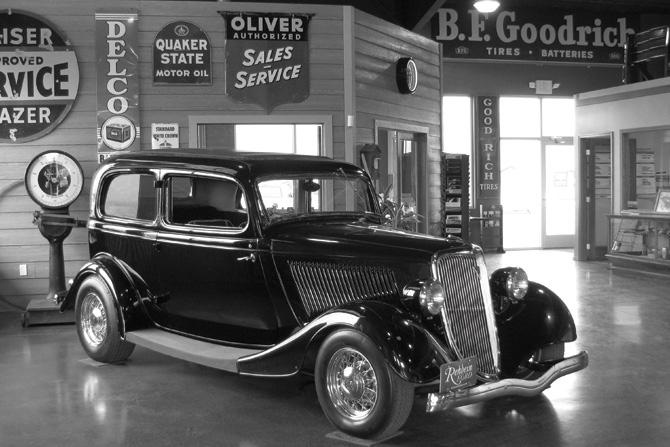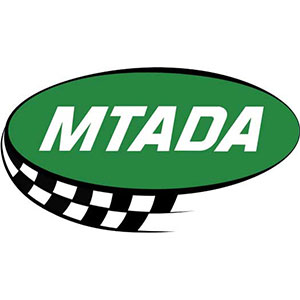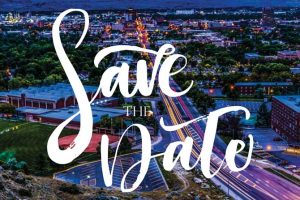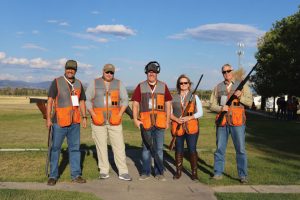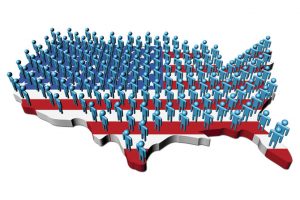Q: How do you pronounce your last name?
A: It’s pronounced Raybine.
Q: You have a degree in automotive mechanics from Northern College in Havre. What life lessons did you learn there?
A: My background has always been in the service business. I studied diesel technology at college, and then I went into road construction after that. I applied all of what I learned to the construction work I did. Now that we have the dealership, my background has really helped us with our shop.
We have a lot of trucks because we have a lot of construction customers. Many of them are people I’ve worked with. My uncle and I each own half of the dealership, but Marvin also has a large construction outfit. As a result, we have ties with other companies we can sell to. We specify how we want Ford to build the trucks, then we set the trucks up and support them after we’ve sold them.
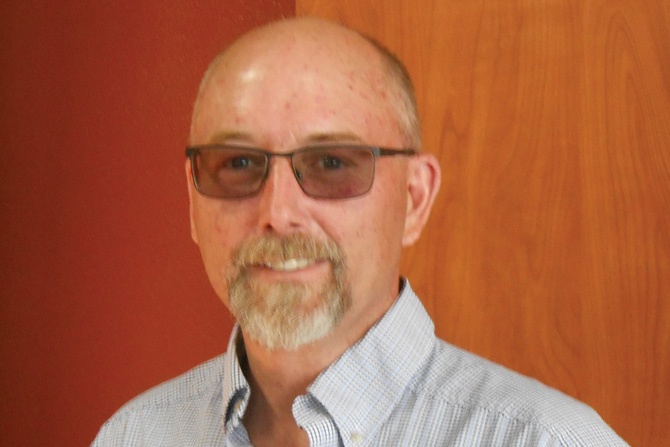
My background has always been in the service business. I studied diesel technology at college, and then I went into road construction after that. I applied all of what I learned to the construction work I did. Now that we have the dealership, my background has really helped us with our shop.
Q: How did you go from owning an independent automotive repair shop to being the general manager for the local Ford dealership in 2006?
A: When I got married, I quit working in the construction industry and went to work for the county for a year. I repaired cars in the evening, by myself at first, and then with a friend when it got busy. Eventually I opened an independent store and started selling used cars. In 2006, the Ford garage needed a manager, and then the owner wanted to sell the dealership. I shut down the independent store, and I managed the dealership until Ford approved our franchise purchase.
Q: What did your repair shop years teach you?
A: Most of what I learned is about customer service and the ins and outs of the repair industry. I learned how to work on all kinds of makes and models. We sell very few trucks, so I lean heavily to the service side of the business. I do a little bit of selling with fleet stuff, and I do bed and truck layout configurations depending on what the vehicle will be used for, whether it’s a flatbed, crane or Tommy lift. That’s what I’ve always done.
Q: You bought the Ford dealership, changed the name to Rehbein Ford, and opened for business in October 2008. That was right in the middle of the Great Recession. Tell us about that adventure.
A: It was an awful time when it happened, but I am happy I went through it because it taught me to be prepared and save money.
Marvin and I built a brand-new store that opened July 24, 2008, and we moved in right after that. We changed the name of the dealership in October. January 2009 was the worst month ever. We sold one truck and had to lay off a couple of people. Our general manager had a strong background in service, so we transitioned to doing just service. After three months, we hired everybody back.
The best thing I learned from the recession was to be cautious. You can work your whole life to build something, and you don’t realize how fast you can lose it. We take a close look at anything we do that will increase overhead or cost a lot of money to make sure we get a good return on the investment.
Much of the credit for surviving the Great Recession goes to my uncle. He had a financial background, which helped us, and he also helped with money to make it through. He doesn’t do a lot of the day-to-day business, but he constantly sells when he travels.
Q: How did your dealership do during and after the pandemic closedown in March 2020? What lessons did you learn, and how did the many product shortages affect your business?
A: We’re in a little rural town. We don’t fly because we never took off that much, and we never soar. We always have one foot dragging on the ground. As a result, the pandemic didn’t cause much of a change. But we did focus again on the service department. We had a decent inventory, and things were fine. Parts were the biggest issue because the time it took to get parts was inconsistent.
Only one service technician came down with COVID-19. Nobody else did. That’s probably because we are in a very rural town. For an example of just how rural we are, we are located in Sanders county, and there are no stoplights in the entire county.
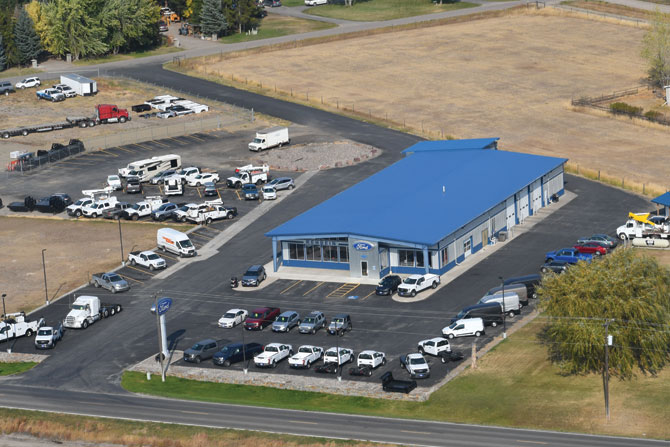
Q: Many dealerships are open Sundays, but not Rehbein Ford. Is that typical for the area? Tell us about that business decision.
A: It’s typical for the area’s stores to be closed Sunday. We’ve never been open for anything unless, maybe, there is a promotion. It’s a family day. You’ve got to have time with your family. There’s an old saying: You work to live, you don’t live to work. Some people do live to work, but we don’t, although I do like to have extra jobs going on the side.
With COVID, we also shut down on Saturdays except by appointment. The service department is only open Monday through Friday, and sales used to be open 9-4 on Saturdays. We will probably have to go back to being open on Saturdays eventually.
Q: Many dealerships put a lot of emphasis on service. What are Rehbein Ford employees currently doing to strengthen the community?
A: We are involved in everything. If there’s a school or church function or a service guy who is into baseball, we support what we can.
Plains, Montana, is a great place to raise a family because it is such a small community. I was born in Minnesota, but I moved here with my parents when I was in sixth grade, and this is where I grew up. After I got married, I came back again and chose to raise my family here. My parents are in town, and my younger brother is, too.
Q: Your website has a big emphasis on trucks and preowned vehicles. How much of that is due to the Ford product line, and how much is due to the customer base?
A: The product line and the customer base work together hand in hand. We do have a strong customer base, but Ford also has a very good lineup of the products our customers buy. We match our customers with the right products.
Q: Your website also has a menu item to bring up autos that are less than $15,000, but June 23, 2021, nothing was listed. How is the used car market right now?
A: A used truck that used to sell for $15,000 will now sell for $23,000. There’s a huge buyer’s market, especially that price range, and high demand drives the price high. You can’t find used inventory unless you spend more money. We’re waiting to see what happens, but we are also looking at auctions and searching in more places. We are still selling new trucks, but the new car inventory is also very limited. We have 4-5 to sell.
Q: Do you have expansion plans?
A: When we built the dealership, it was big enough. If anything, it is too big now for a little town, so the footprint is fine. We are very comfortable getting most of our income from the service shop. For us, expansion consists of buying the techs better equipment. That’s how we expand.
Not too many dealership owners are driving their own trucks. We have a car hauler and can deliver all our own cars, but we mostly just haul our own stuff. The car hauler helps us when we drive back and forth to the auctions. We are pretty rural, and waiting for a truck would be hard. (Eric owns the dealership that is the nearest to mine, and he’s still 50 miles away over the hill.) A semi is better to drive because I can take what we want to sell and bring back what we bought. Our system works well for us.
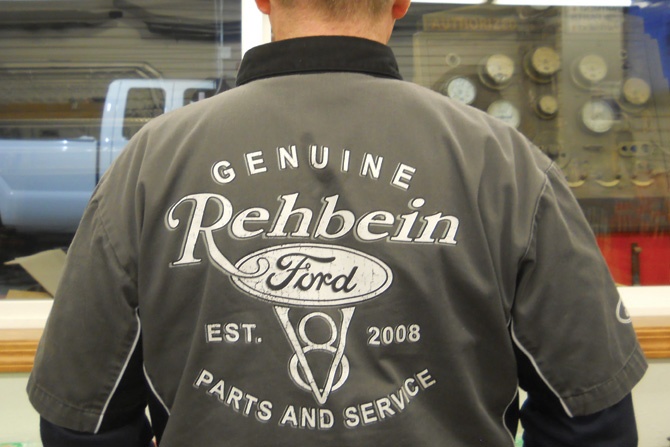
Q: What are the big issues for Montana dealers in the next 5-10 years?
A: The biggest issue currently is getting inventory and parts. In the long term, it will be finding technicians. There is a definite technician shortage.
It’s hard to find younger people with the qualifications to work on the new cars because you just about have to be a computer engineer before you can work on them. The grease monkey days have changed. Now you need computers and laptops, and it’s hard to find the technicians who can do what is needed. The service personnel in the shop are important to us. Car dealers can emphasize sales, but if they don’t have people to support what they’re selling, they have a problem. Who is going to buy an $80,000 rig if they can’t get service on it?
I stay in touch with people at the college up in Havre, and I try to find local guys who like living in a small town. As much as we can, we like to grow our own. If you take somebody and transplant them to Plains, Montana, they might not be happy because we don’t have the stores they are used to. If they are married, their spouses move with them, but if someone is single and moves here, they find that you don’t really have a dating pool here. It’s more like a mud puddle. That’s hard.
We have been fortunate with COVID. We have hired some good people who moved from a good area where the town used to be small, but it grew. They still wanted to live in a small town, so they moved here with all the credentials. We hired a service guy from Nevada. He was a great find. His in-laws were here, and he came with his family. For young guys who are 23-25, they will love it if they like outdoor sports like hunting and fishing, but if someone moves here and doesn’t have a boyfriend or girlfriend, that’s a problem.
A lot of our staff are women. Ally is a service writer, Heidi is a sales manager, Brittany does F&I, and Pete (her name is Becky, but she goes by Pete) does bookwork and accounting. However, we don’t have any women in the service department.
Q: What are your goals as an incoming executive board member?
A: I don’t have any real goals other than sitting, learning and giving input when I can. You learn a lot by listening. I may have some goals in a year or so, but first, I have to get my feet wet. I have been to one meeting in Helena, and I’ve already learned that Bruce Knudsen is an excellent leader who knows how to make everybody else look great, too.
Q: How will your past experiences help you?
A: Managing the dealership teaches you how to deal with people and problems.
Q: What are your personal interests? What do you do for fun?
A: I enjoy collecting, rebuilding and driving cars, especially old cars. The cycle is to fix, drive, enjoy and sell. Also, I collect old gas station memorabilia like gas pumps, signs and pictures. Sometimes I go to swap meets. I really enjoy the old stuff.
My oldest car is a 1934 Ford two-door, which is in the showroom, but I also have four or five others. I sell them periodically.
My uncle owns cars, too. We use them in shows. We can drive them to work in the summertime, but then we put them away in the wintertime.
Q: What about your family?
A: My wife teaches seventh- and eighth-grade algebra in Plains. My daughter lives in Boseman. She is an aesthetician, and her husband manages a restaurant. They have a little girl. My middle child is a son who lives in Vancouver, Washington, and works for a construction company. He is an account manager. In addition to managing money, he keeps track of job costs. My youngest boy is going to school in Boseman and studying to be a draftsman.



